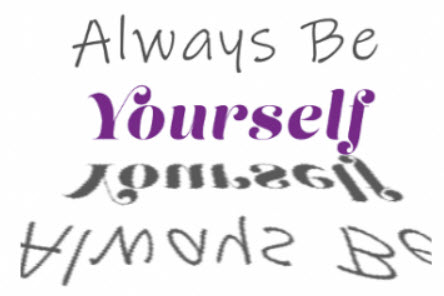Do you find it hard to say “No” to others and say “Yes” to things that support your own choices, preferences and personal satisfaction?
If you do, you’re not alone but it doesn’t have to be this way going forward.

As someone who naturally likes to listen and help (including times when a “No” would’ve been more appropriate!), let’s explore some simple, easy and respectful ways to stop feeling like you’ve got to say “Yes” to others and so you can get comfortable saying “No” when you need to, either at work or any social setting.
I have issues saying “No” …
Many people have issues learning how to say no to others. Whether it’s because of the way we’re raised, or the way we’ve learned to handle our problems, it can be difficult to turn people down without good reasons to do so.
there doesn’t always have to be a reason outside of what’s best for your personal health or even simple preferences.
However, there doesn’t always have to be a reason outside of what’s best for your personal health or even simple preferences. Learning how and when to say no to things is an important skill to have, since it prevents others from being able to walk all over you.
When you’re trying to achieve a sense of work-life harmony and balance, this is especially crucial because it allows you to maintain firm control over how your time and your energy is spent throughout the day.
That’s something everyone needs, especially as more places transition to hybrid and flexible workplaces.
We’ve Been Raised to Sacrifice Our Well-Being as People Pleasers
A common cultural trend that’s been passed down from generation to generation has been the concept of always helping when someone asks you for help. Even if it’s not in your best interests, if someone asks you for help, you’re supposed to say yes so that you don’t come off as rude.
The main problem with this is that there’s not a clear line that divides between people asking you genuinely for help and people taking advantage of your generosity.
However, it can still be hard to say no, even if it seems like they might be trying to take advantage of you.
One of the issues people face with trying to say no in the first place is that it feels a bit awkward.
It doesn’t make sense logically, but declining when someone asks you for something feels rude to many people ?
Maybe you’re one of them?
Even when saying no is of great benefit to your health, it feels selfish even to turn down others when they need or want something. Inherently, this comes from you wanting to make others happy, which is natural.
However, when making others happy overrules your own happiness, comfort, and health, you need to draw a line in the sand. Your desire to give others what they want might be making you more stressed and unhappy.
By learning when and how to say no to things, you’ll be able to feel more confident in yourself, but more importantly, you’ll be happier not doing things that you really don’t want to do.
Doing things that you don’t want to do or don’t have time to do can increase your stress very quickly.
Doing something annoying can have you thinking about it the whole day, and doing something time consuming will force you to try to catch up.
If you have any prior beliefs about always offering help (saying “Yes“) when someone requests it, you should discard that mindset as soon as possible. Only then will you be able to fully be happy and content doing what you want to do.
How Do You Say No to Someone Who Asks for Something?
 One of the main concerns people have when it comes to saying no is that they don’t want to come off as rude. Unfortunately, to many people, the very act of saying “No” is a rude thing to do, so they always default to a yes ?
One of the main concerns people have when it comes to saying no is that they don’t want to come off as rude. Unfortunately, to many people, the very act of saying “No” is a rude thing to do, so they always default to a yes ?
There certainly are many rude ways to say no, but there are just as many polite and respectful ways. The phrasing you use depends on different factors, such as the importance of the task, your reasons, and whether or not you feel the need to explain it.
There are a variety of phrases you can use to say no while still being polite. If you just outright say, “No!” and leave it at that, it’s going to be seen as rude or dismissive. By using the right phrasing, you can easily change your tone.
Example
? For example, say that someone asks you for a sum of money.
On the smaller end, you might say they ask you for $20. At that point, many people would feel bad saying no, because it’s not a lot of money, but you should hold your ground.
If it’s a close friend or family member, you might say something like, “I’m sorry, but I’m tight on money right now.” This denotes that you’re somewhat apologetic about not being able to lend them the money, but you firmly assert that you cannot help.
In other cases, saying sorry in your phrase might be a bad idea, because you might not want to give them the impression that you’re sad you can’t do it. For example, if a coworker asked you to lend them something like $2,000, you’d want to be firm on it!
In that case, you’d give a response more like “No, I don’t have those funds to spare” or something along those lines. It’s a much firmer response due to the lack of familiarity with them, and because of the amount of money requested.
How to Respond Confidently
One thing you want to avoid when declining something is why you’re declining. A little bit of an explanation is fine, but you shouldn’t feel the need to explain why you choose not to do something that’s entirely optional.
At Work with Your Boss
? For example, let’s say your boss has dumped a large project on you without consulting you first.
You already have your hands full, so you decline and request that someone else who’s less busy does it.
In that case, you can explain to your boss a little bit that you’re otherwise preoccupied with work, but you shouldn’t have to give some long list of things that you have to do in order to have your wishes and requests respected.
…you shouldn’t have to give some long list of things that you have to do in order to have your wishes and requests respected.
If you being too busy isn’t a good enough response for why you can’t do some large project, you’re most likely not being respected and taken seriously by your boss.
By saying “No” instead of just blindly accepting it, you’re able to learn how others see you.
Practice the Art of Saying “No” to Big Things
When you’re first learning how to say no to things, you might think the logical thing to do is to start off with saying no to little things, since they have less impact on you and the other person.
As you put these tips into practice you might find it easier to start off by saying no to “little” things – it’s expected but not the way to go!
Start off by saying “No” to major things instead. It’ll seem like a bigger deal at the time, but it’s much easier on you to say no to something that would be such a large commitment.
For example, someone might ask you to lend them a large amount of money. This is a steep request, and it’s one that they’re probably asking you, expecting to be turned down in the first place.
With large commitments or things that would be very difficult for you to do, it’s actually easier to turn them down.
The reason? It’s almost expected that you will.
The opposite is true of small tasks, though.
Small Tasks
If someone were to ask you to do something small, like pick them up on your way to work, assuming they live between you and where you work, it might be much harder for you to turn something like that down.
In that case, it might add something like two minutes to your total drive time, but it’s still something that you don’t want to do. In this case, saying no is more difficult because you don’t exactly have a good reason for not doing it.
Avoid getting into the routine of feeling like you must explain yourself.
You might feel the need also to come up with various reasons, like not wanting to go that certain route or needing to conserve gas, which all may or may not be true. However, you don’t want to get into the routine of having to explain yourself.
By saying no to big things, you’re able to get a solid foundation by not having to explain yourself, since it’s likely already understood why you’re saying no. Explaining yourself communicates to others that you’re probably uncertain, and some people might try and use that against you.
The “Skill” of Saying “No”
Saying no is really a skill and…
Saying “No” meaning it and getting people to accept your no is something that you need to get used to and practice doing over time.
You shouldn’t expect to do it perfectly every time, just like you wouldn’t with any other social skill.
As time goes on, you’ll be more used to saying no to people, and those smaller tasks will feel more normal to say no to. You might even end up being more nervous saying no to little things for the first time than you were saying no to big things for the first time.
Just know that the benefits of saying no to things, whether they’re large or small, outweigh the cons. Improving your work life balance will be incredibly helpful for you, while saying no to a small thing might only inconvenience someone else.
When Should You Say No to Someone?
Saying no isn’t just something you should do for fun, but rather it’s a tool you should use when you need to be prioritizing your own interests and well-being.
If you really don’t have any desire to decline someone, you shouldn’t, but you should be able to when YOU want to.
A common reason you might say no is that you are literally unable to do what’s being asked of you.
For example, if someone wanted you to come help them with something at 7 P.M., but you already had other plans then, you wouldn’t be able to.
Situations like these are very easy to identify and are very easily declined. However, a more difficult situation might be one where there are no direct conflicts, but rather it involves you putting yourself and your health first.
 First, there’s the matter of physical exhaustion. Getting tired from work or other commitments is very common, so if you don’t want to do something because you’re already exhausted, that’s a very understandable reason.
First, there’s the matter of physical exhaustion. Getting tired from work or other commitments is very common, so if you don’t want to do something because you’re already exhausted, that’s a very understandable reason.
Even if the other person doesn’t or intentionally chooses not to see it the way you do it doesn’t change things.
Many people overload themselves with commitments instead of giving themselves ample time to rest. This doesn’t just hurt you by exhausting you, but it also hurts your other commitments, since you won’t be able to do them as well.
Mental Health – Often Overlooked Reason for Saying “No”
An often overlooked reason for saying no to things is mental exhaustion.
Mental health is just as important as physical health, if not more in some cases. Even if your body is awake enough to do something, you might just need some time to yourself to recharge.
These are the situations that prove hardest for people to say no in.
You might disregard mental health as being unimportant, but that’s very far from the truth. Mental health is so important, and it can also directly affect your physical health.
If you’ve had a rough week and you just need a day to do very little, don’t say yes to excessive things that day. If you think it’ll help brighten your day, that’s fine, but if it’s another burden, just say no.
When you’re not physically or mentally prepared to do a task or to help someone with something, you’re not going to be able to do it well.
You can’t accomplish a task or help someone if you’re not physically or mentally prepared. When you say yes, you’ll do the task poorly, AND you’ll be tired.
- You need to understand that it’s okay to take those kinds of days off to yourself.
- You won’t be selfish for doing it, and you’re not going to be a bad person for it.
- You need to be able to do what’s best for you.
By prioritizing your own mental and physical well-being, you’ll be able to feel much better, and also do what’s required of you correctly. Don’t take on so many responsibilities that you end up hurting yourself in the process.
How to Handle Pushy People

Unfortunately, there are people who you’ll meet that won’t respect your decisions and choices to help yourself, and will try to paint you in a bad light while ‘demanding‘ that you do exactly what they ask of you!
These pushy people will hound you again and again trying to get you to fold, but you have to remain strong and fight back against these types of people. Usually, once you start to show more resistance, they’ll end up backing off.
Some people tend to be pushy because they think it’s their best chance at solving their own problems.
In my experience as a business coach, life coach and change management consultant I’ve discovered something interesting.
Often, people are pushy because they think it’s their best chance to solve problems. Their problem might be that they’ve already taken on too much and are now trying to push it on you or others.
One thing to keep in mind is that you’re not their only outlet to push things onto.
If you hold your ground well enough against them, chances are they’ll move on to the next person pretty quickly. These kinds of people run their lives by pushing stuff onto others, so if you impede that, they’ll just go elsewhere to keep the flow going.
Otherwise, they’ll just have to give in and do what they need to get done by themselves!
What’s a Solution for Handling a Pushy Person?
? When you’re first faced with a pushy person, you should match their level of kindness appropriately. If they keep kindly asking you to do something, you should continue to be kind in your answers.
Some people make the mistake of responding to the kindness with rudeness, which ends up either giving them something to paint you poorly for, or it gives them more excuse to hold that over you.
However, you shouldn’t be afraid to be strong and be direct once they start to get rude. Pushy people are very similar to bullies in behavior patterns, so once you start to show harsh resistance, they tend to back off, since they’re not used to it.
Sometimes people can be pushy without realizing that they’re doing it.
There are people who simply aren’t self-aware and can be pushy without realizing that they’re doing it. In these cases, you need to be able to clearly draw out your boundaries and communicate them to them, so that they know what they can and can’t do.
Example
For example, you might want to set a boundary that tells them they can’t ask you to do the same thing more than twice. This prevents them from continuously trying to push it on you, assuming they listen.
Conclusion
Remember that you’re holding your ground in these situations for your own personal satisfaction.
While it might seem rude to decline someone so many times, however, if it’s for your well-being, that’s what’s most important.
? Sharing is caring, so feel free to share your feedback, thoughts or tips of your own here.
ℹ I’ve chosen to live my legacy of inspiring and empowering people to change and here’s what clients are saying.
ℹ So you don’t miss out on resources I create and share, I invite you to follow me on follow me on Linkedin
